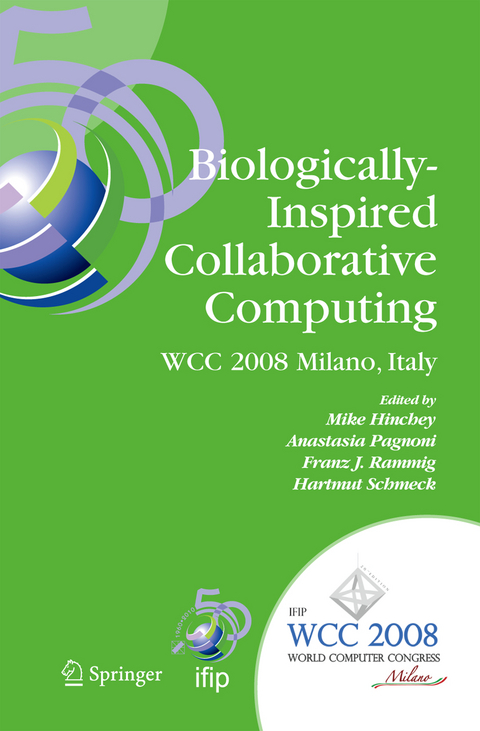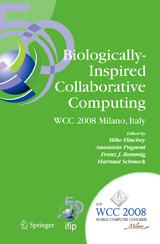Biologically-Inspired Collaborative Computing
Springer-Verlag New York Inc.
978-0-387-09654-4 (ISBN)
Keynote Presentations.- Swarm Robotics: The Coordination of Robots via Swarm Intelligence Principles.- Immuno-engineering.- Inspiration Based on Insect Behaviors.- Heuristics for Uninformed Search Algorithms in Unstructured P2P Networks Inspired by Self-Organizing Social Insect Models.- Congestion Control in Ant Like Moving Agent Systems.- Resource-Aware Clustering of Wireless Sensor Networks Based on Division of Labor in Social Insects.- Sensors, Actuators and Networks.- Self-stabilizing Automata.- Experiments with Biologically-Inspired Methods for Service Assignment in Wireless Sensor Networks.- Robotics and Multi-Agent Systems.- Evolving Collision Avoidance on Autonomous Robots.- Local Strategies for Connecting Stations by Small Robotic Networks.- Measurement of Robot Similarity to Determine the Best Demonstrator for Imitation in a Group of Heterogeneous Robots.- Distributed Fault-Tolerant Robot Control Architecture Based on Organic Computing Principles.- Immunocomputing and Biological-Inspiration.- Intrusion Detection via Artificial Immune System: a Performance-based Approach.- Immuno-repairing of FPGA designs.- An Organic Computing Approach to Sustained Real-time Monitoring.- Applications.- A Case Study in Model-driven Synthetic Biology.- Image Segmentation by a Network of Cortical Macrocolumns with Learned Connection Weights.- Integrating Emotional Competence into Man-Machine Collaboration.- Hardware Issues.- Self-optimized Routing in a Network on-a-Chip.- On Robust Evolution of Digital Hardware.- Collaboration.- A Model of Self-Organizing Collaboration.- Guiding Exploration by Combining Individual Learning and Imitation in Societies of Autonomous Robots.
| Erscheint lt. Verlag | 7.8.2008 |
|---|---|
| Reihe/Serie | IFIP International Federation for Information Processing ; 268 |
| Zusatzinfo | XII, 247 p. |
| Verlagsort | New York, NY |
| Sprache | englisch |
| Maße | 155 x 235 mm |
| Themenwelt | Informatik ► Theorie / Studium ► Künstliche Intelligenz / Robotik |
| Informatik ► Weitere Themen ► Bioinformatik | |
| Naturwissenschaften ► Biologie | |
| ISBN-10 | 0-387-09654-X / 038709654X |
| ISBN-13 | 978-0-387-09654-4 / 9780387096544 |
| Zustand | Neuware |
| Informationen gemäß Produktsicherheitsverordnung (GPSR) | |
| Haben Sie eine Frage zum Produkt? |
aus dem Bereich




